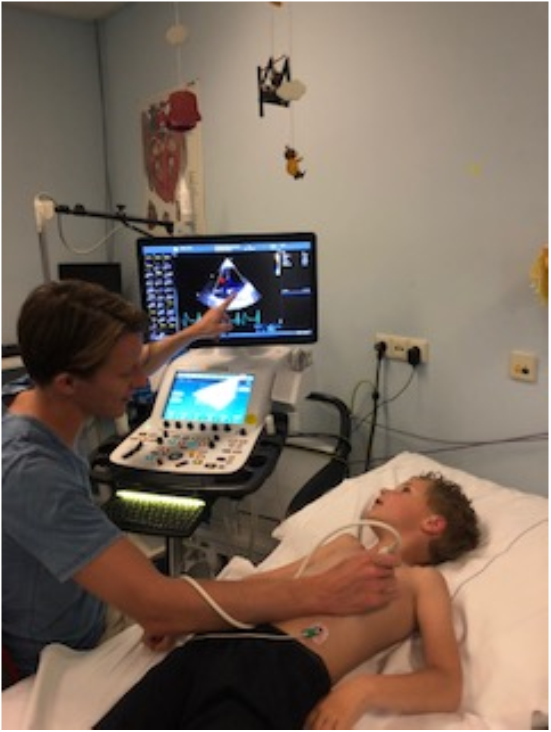
In his project, Arend van Deutekom assessed the effects of a preconceptional lifestyle intervention in women with obesity on the cardiovascular health of their children. He showed that children from mothers who underwent the lifestyle intervention had a reduced cardiac mass and increased cardiac output at age 6-8 years. These are markers of improved cardiac development and cardiac health. These effects were detected both by echocardiography and by CMR imaging.
Additional analyses to look into specific changes of cardiac shape, in collaboration with the University of Oxford, and the effects of the lifestyle intervention on fat mass, are currently underway. Since cardiac structure and function are known to track across the life course and predict cardiovascular disease risk in later life, this study provides the first experimental human evidence suggesting preconception lifestyle interventions may reduce cardiovascular disease risk in the next generation. These are very promising findings that need further investigation and may ultimately translate into new strategies to prevent cardiovascular morbidity and mortality in generations to come.
This project has led up to the following follow-up grants:
- 2020 Mar – 2021 Mar: European Society of Cardiology Junior Research grant, €12.500, Statistical Shape Analyses
- 2019 Jun – 2020 Jun: The Netherlands Heart Institute Research Fellowship Grant, €45.000, Defining the shape of the paediatric heart
- 2019 Apr – 2020 Sep: The Netherlands Organization for Health Research and Development (ZonMw) Rubicon Fellowship Grant (452183001), €91,084, Cardiac shape after early-life insults: Defining the effects of maternal obesity and preterm birth on cardiac health of children


